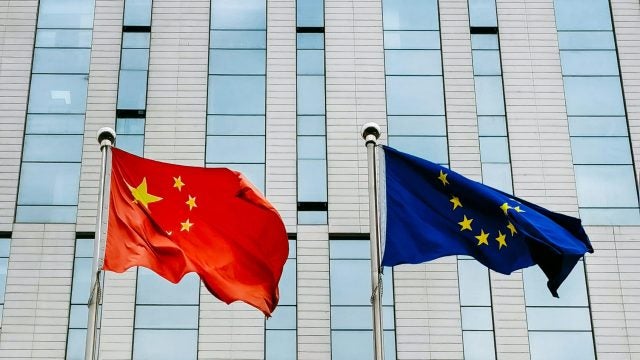Title: New ESG Practices in China and its Implications for Foreign Actors
China’s implementation of new ESG practices suggests a serious shift towards meeting global standards and domestic-level sustainable development objectives. The new ESG regime also has the potential to be a tool for Chinese foreign policy in the 2020s.
The environmental, social, and corporate governance (ESG) landscape is rapidly evolving in China. While the number of ESG regulations globally have increased more than tenfold over the last fifteen years, China will lead the international growth in disclosures in the early 2020s.
Available evidence indicates a potential surge in ESG disclosures in the nation. In 2019, there was an increase in the number of Chinese signatories to the UN-supported Principles of Responsible Investment. At present, China’s Bloomberg ESG disclosure score is 21.6, less than half of France’s top-ranking score of 46.9. However, the Bloomberg ESG score for China is likely to increase in the coming years, owing mostly to recent changes in legislation that shifts from voluntary to mandatory ESG disclosure requirements for listed firms. The China Securities Regulatory Commission (CSRC), in collaboration with China’s Ministry of Environmental Protection, has introduced new requirements that, by the end of 2020, will mandate all listed companies to disclose ESG risks associated with their operations.
This development begs the following questions: Do the new ESG regulations meet global standards? Are the Chinese serious about instilling new ESG regulations? And finally, could China use ESG investing as a foreign policy tool?
Meeting Global Standards
China’s move from a voluntary disclosure regime to a mandatory one is on par, or exceeds, regulatory requirements in other nations.
For instance, in European markets, the European Union’s Directive on Disclosure of Non-Financial and Diversity Information requires large firms and public-interest firms to disclose environmental, social, and employee-related matters, such as anti-bribery, corruption, and human rights performance. Similarly in the United Kingdom, listed firms are mandated to provide a report disclosing their annual greenhouse gas emissions, diversity, and human rights provisions under the Companies Act of 2006.
In the United States, the Securities and Exchange Commission (SEC) requires all listed firms to disclose their environmental compliance expenses. Moreover, there is a new movement towards increasing ESG requirements in the SEC’s mandatory integrated disclosure regime.
Finally, in Asia-Pacific markets, regulators and stock exchanges have adopted varying approaches to reporting ESG information. Reporting is voluntary in markets such as Australia and Japan, while in Singapore and Hong Kong the reporting obligation is on a “comply or explain” basis. Nevertheless, across the region, there is a trend for tightening of reporting obligations—with China being no exception—which has led to an increase in the volume of ESG disclosures.
The Chinese Government’s Commitment to Implement ESG Standards
From a meta-level, the Chinese government appears to be determined to improve ESG standards for several reasons. Foremost, China is the top manufacturing location for the global 500 firms, which makes sustainability performance-critical. Sustaining current, and attracting future, foreign investors will require improvements in transparency in the Chinese financial markets, and this commitment to foreign trade and foreign investments has pushed the Chinese government towards reform and transparency. China’s desire to maintain and attract foreign investment, particularly accessing the more than thirty trillion USD of funds that have been funneled into sustainable investing worldwide, will require a greater focus on ESG issues.
Furthermore, sustainability reporting remains an important entry point to implementing China’s 2030 Sustainable Development Agenda. The 13th Five Year Plan approved by the Fourth Session of the 12th National People’s Congress in March 2016, links the 2030 Agenda with domestic mid-and long-term development strategies. To guide and advance implementation efforts, China’s National Plan on Implementation of the 2030 Agenda for Sustainable Development partially draws on the nation’s contemporary experiences with social and economic development and lays forth the challenges and opportunities, general principles, and approaches for the implementation of the 17 Sustainable Development Goals and 169 targets.
From a micro-level, environmental factors have received the greatest attention (and the most readily achievable objectives) in comparison to social and corporate governance factors. The Chinese government has committed to the 2016 Paris Agreement, and the state has imposed strict regulations to curb greenhouse gas emissions and pollution. This is coupled with actively promoting renewable energy and electric vehicles through state subsidies. Yet, environmental performance information remains insufficient and will require greater environmental risk information statistics and data disclosures to meet the demands of foreign actors.
The government’s commitment to social factors is murky. There continues to be numerous documented incidences of poor labor conditions. The ineptitude and/or strategic ignorance of local public officials explains this trend. Interestingly enough, Chinese citizens are increasingly aware of these conditions and are inclined to have more critical evaluations of the state’s management in this regard. Suffice it to say, the social component of ESG represents one of the biggest challenges for Chinese firms and the government to overcome in order to attract foreign actors and appease the domestic citizenry.
Finally, when it comes to corporate governance factors, many Chinese listed firms have an opaque and often confusing ownership structure where investor voting rights have little to no weight. Given China’s concentrated ownership structure, potential conflicts of interest between majority and minority shareholders remain a core corporate governance issue. Furthermore, transparency is another issue. ESG rating agencies regularly operate with outdated information, and thus, having inaccurate data for Chinese firms is often a reality. This situation is worse with state-owned enterprises (SOEs).
ESG Investing as a Chinese Foreign Policy Tool
ESG investing has the potential to be a factor in Chinese outward-looking policies and practices, whether it is in the much-publicized Belt and Road Initiative (BRI) or activities in the continent of Africa.
First, when it comes to Chinese firms’ activities overseas, the aspiration is that if Chinese SOEs and private firms successfully adopt ESG principles in their operations, this will have a trickledown effect on their supply-chain partners. At present, it is too early to assess this possibility. A pessimistic assessment will suggest that having ESG principles adopted by Chinese firms’ supply-chain partners will have mixed results, akin to the mid to late 2000s, with the hope that labor standards will be improved through a similar mechanism.
Second, Chinese SOEs and private firms do not have the best track record overseas when it comes to corporate social responsibility and implementing related ESG principles. For example, China’s ambitious BRI plan to connect over seventy nations failed to have environmental design requirements integrated into early-stage project planning. A 2019 study, aptly titled Greening the Belt and Road Initiative, found that apart from the lack of information on sustainable and green investment opportunities, getting the BRI to “go green” has not gained the full attention of the financial industry nor the wider private sector. This is troubling given many communities where infrastructure projects are planned, or in the process of being built, have a host of environmental risks and accompanying social development issues. This has the potential to be flash points in balancing ESG requirements with China’s foreign policy objectives and economic development priorities.
Third, the case of China’s contemporary experience in Africa suggests that Chinese firms are not necessarily trailblazers when it comes to adopting social and corporate governance principles in their local host jurisdiction. To wit, when Chinese SOEs and private firms aimed to fund social and economic development activities in the 2010s, they were only doing so when introduced or directed by Chinese state agencies or government-organized NGOs (GONGOs). The majority of these activities were also temporary one-off projects, with little long-term impact on the host community. There is little evidence to suggest that state strategies will be different in the near future with the rise of ESG principles in play with Chinese firms.
. . .
Reza Hasmath (Ph.D., Cambridge) is a Full Professor in Political Science at the University of Alberta. His award-winning research looks at how the behavior of China affects salient theories, practices, and assumptions in international affairs.
Recommended Articles

This article contends that South Africa’s 2025 G20 presidency presents a critical opening to shape governance of critical mineral supply chains, essential for renewable energy, digital economies, and national…

Germany’s economy is being throttled by a more competitive China that has usurped its previous manufacturing dominance in many industries. In response, Germany has doubled down on the China bet…

In 2021, the European Union (EU) attempted to assert itself in the Indo-Pacific arena to increase its geopolitical relevance by releasing an ambitious and multifaceted Indo-Pacific Strategy. However, findings from…